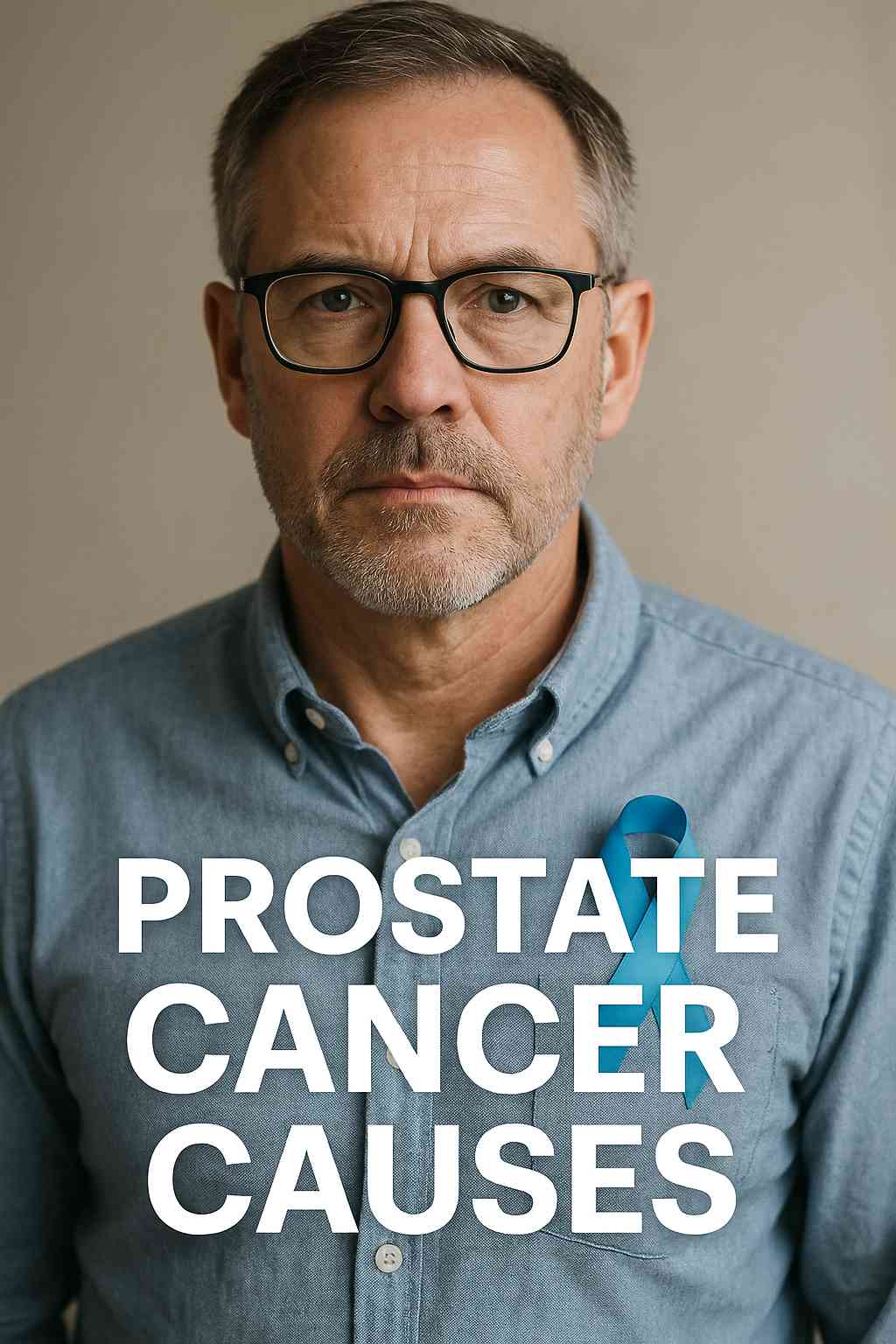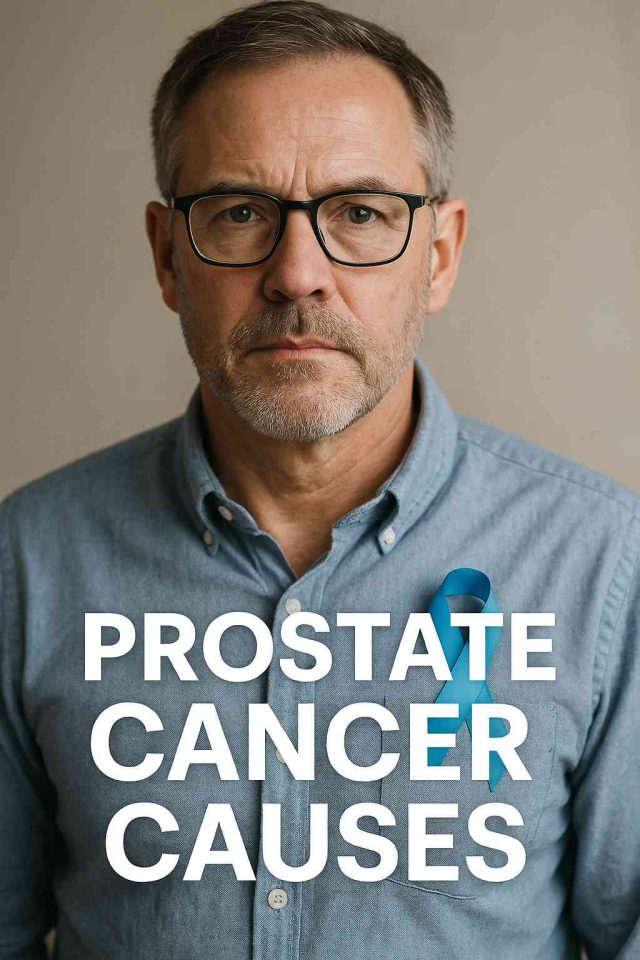
When it comes to prostate cancer, many men ask a crucial question: what causes it in the first place? While there is no single answer, understanding the leading prostate cancer causes can help individuals take proactive steps toward prevention and early detection. Like many other cancers, prostate cancer is the result of complex interactions between genetic, environmental, and lifestyle factors. However, science continues to make progress in identifying risks that could play a role in this condition.
Table of Contents
- Understanding Prostate Cancer: A Quick Overview
- Genetic and Hereditary Risk Factors
- Environmental and Lifestyle Influences
- Hormonal and Age-Related Triggers
- Conclusion
- FAQs
Understanding Prostate Cancer: A Quick Overview
Prostate cancer is the most commonly diagnosed cancer among men, aside from skin cancer. The prostate gland, which is part of the male reproductive system, is responsible for producing seminal fluid. When the cells in the prostate begin to grow uncontrollably, prostate cancer can develop.
This type of cancer usually grows slowly and may not show symptoms until its later stages. However, aggressive forms do exist and can spread quickly to bones or lymph nodes. Because of this, understanding prostate cancer causes becomes essential for early intervention and treatment.
Doctors rely on several screening tools, such as PSA (prostate-specific antigen) tests and digital rectal exams, to detect abnormalities. The causes of prostate cancer aren’t always clear, but several factors consistently appear in research and clinical observations.
For further insights on health trends, visit Health.HealingWell.com.
Genetic and Hereditary Risk Factors
Genetics plays a significant role in determining a man’s risk for prostate cancer. Men with a family history of the disease are more likely to develop it themselves. If a father or brother has been diagnosed with prostate cancer, the risk doubles. This familial link may result from shared genes or common environmental exposures.
In particular, mutations in the BRCA1 and BRCA2 genes—well-known for their association with breast and ovarian cancer—can also increase the likelihood of developing prostate cancer. Additionally, Lynch syndrome, a genetic condition tied to several types of cancer, can elevate prostate risk as well.
Ethnicity is another genetic factor. African American men have a higher incidence of prostate cancer and tend to develop more aggressive forms of the disease. The reasons behind this disparity are still under study, but genetic susceptibility is believed to contribute.
Furthermore, research continues to uncover genetic markers that may help doctors identify men at higher risk. These discoveries could lead to more personalized screening protocols in the future. If you have a family history of prostate cancer, consult a provider through Healthcare.pro to discuss early screening options.
Environmental and Lifestyle Influences
Although genetics provide part of the picture, environmental and lifestyle factors are equally important in understanding prostate cancer causes. Diet, physical activity, and exposure to certain toxins all influence risk.
Diets high in red meat, processed foods, and saturated fats may elevate the risk of prostate cancer. In contrast, Mediterranean-style diets rich in fruits, vegetables, whole grains, and healthy fats are associated with a lower risk. These foods contain antioxidants and anti-inflammatory compounds that may protect against cancerous growth.
Obesity and sedentary behavior have also been linked to more aggressive prostate cancer. While the exact mechanism remains unclear, excess body fat may lead to hormonal imbalances or systemic inflammation that promotes tumor development.
Exposure to certain chemicals, such as pesticides or industrial toxins, might also contribute to prostate cancer. Men who work in agriculture, metalworking, or manufacturing could face increased risks due to regular contact with hazardous substances.
Lastly, smoking and excessive alcohol use are known contributors to poor overall health and may exacerbate the risk of advanced prostate cancer. Making healthier lifestyle choices could reduce these risks substantially.
Hormonal and Age-Related Triggers
Hormones, particularly androgens like testosterone, play a central role in prostate function and growth. Elevated levels of testosterone or its byproducts can stimulate prostate cells, potentially leading to abnormal growth and cancer.
As men age, hormonal balances shift, which can contribute to the development of prostate cancer. This is why most cases are diagnosed in men over 50. Age not only increases risk but may also reduce the body’s ability to suppress cancerous changes.
Some men undergo testosterone replacement therapy (TRT) for conditions like hypogonadism. While TRT has benefits, it must be carefully monitored, especially in individuals at risk for prostate cancer. Clinicians usually perform screening tests before starting therapy.
Inflammation and infections in the prostate, such as prostatitis, have also been studied as possible triggers. Chronic inflammation may damage cells and lead to mutations over time. Though a direct causal link hasn’t been definitively proven, inflammation remains an area of ongoing research.
Regular screenings and monitoring of hormonal levels become increasingly important with age. Men over 50, or over 45 with a family history, should consider speaking with a healthcare provider about proactive screening plans.
Conclusion
The causes of prostate cancer are complex and multifactorial, involving a mix of genetic, environmental, and hormonal factors. While some risks, like age and family history, can’t be changed, others are within your control. Adopting a healthy lifestyle, staying informed, and participating in regular screenings are the best defenses. Ongoing research continues to shed light on prostate cancer causes, offering hope for better prevention and treatment strategies.
FAQs
Can prostate cancer be prevented?
While there is no guaranteed prevention, adopting a healthy lifestyle and participating in routine screenings can reduce risk and support early detection.
Who is at highest risk for prostate cancer?
Men over 50, African American men, and those with a family history of prostate cancer are at highest risk.
Is prostate cancer genetic?
Yes. Certain genetic mutations like BRCA1/2 and Lynch syndrome can increase risk. Family history also plays a significant role.
Does diet influence prostate cancer risk?
Yes. Diets high in processed meats and saturated fats may raise risk, while plant-based diets rich in antioxidants are linked to lower risk.
What role do hormones play in prostate cancer?
Androgens like testosterone can stimulate prostate cell growth. Hormonal imbalances, especially with age, may contribute to cancer development.
“This content is not medical advice. For any health issues, always consult a healthcare professional. In an emergency, call 911 or your local emergency services.”




